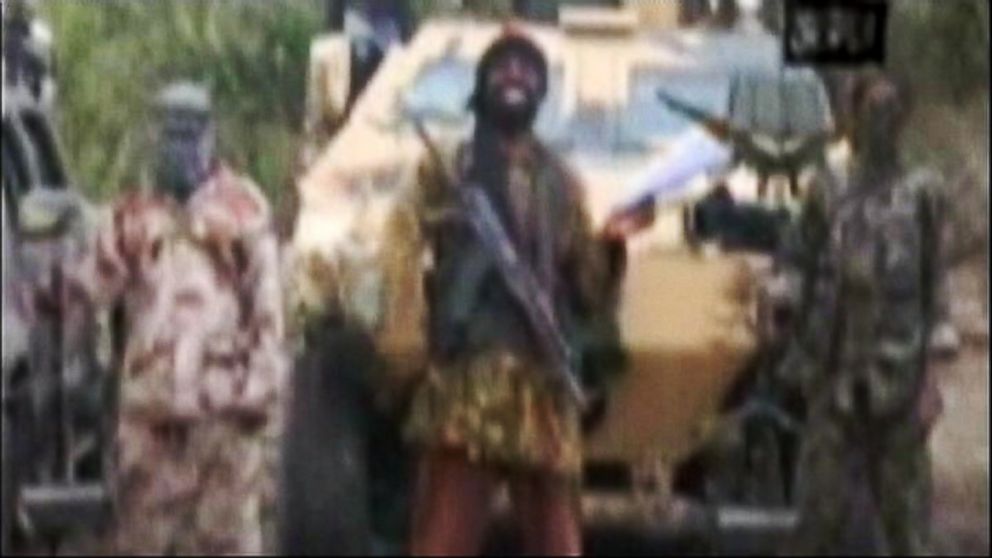Debates in DC Delayed Action on Boko Haram, Officials Say
Source: Special operations wanted to target Nigerian terror group years ago.

May 8, 2014 — -- WASHINGTON - Disagreements over how big of a threat Nigeria's Boko Haram extremists posed to the West delayed the group's designation as a top global terrorist group for years, current and former officials told ABC News this week.
Boko Haram, a loose band of ultra-violent Islamists that kidnapped more than 200 schoolgirls last week who they have promised to sell into slavery, was formally designated a Foreign Terrorist Organization in November 2013, two years after some lawmakers and others inside U.S. counter-terrorism programs called for it to be taken more seriously, the officials said.
"At the time -- and I still think it's very true -- we didn't move on Boko Haram because we thought it would give them a recruitment boost," former Obama administration Undersecretary of State for African Affairs Johnnie Carson told ABC News on Thursday.
The disagreements within and between the Departments of State, Justice, Treasury and Defense stymied efforts by some, including the Special Operations community and U.S. Africa Command -- the Pentagon's combatant command for the continent -- who wanted to target Boko Haram for surveillance, human intelligence penetration and possibly even lethal action just as they had other al Qaeda-aligned terrorists.
"Special Operations Command and others tried to elevate the status of Boko Haram to a Tier One Threat Group several times, only to be shot down by State," said a senior official familiar with the policy debate.
FULL COVERAGE: Kidnapped Nigerian Girls
The refusal was based on State Department officials' belief between 2010 and 2012 that Boko Haram was not a transnational threat outside of Nigeria or a direct threat to the U.S. homeland, officials told ABC News. The Daily Beast reported Thursday that the FBI, CIA and Justice Department pushed for FTO designation for Boko Haram in 2011 after a bombing at the United Nations office in Nigeria. Clinton aides at the State Department resisted, the report said.
But in June 2012 -- 17 months before declaring the entire Boko Haram organization as an "FTO" and three years after its formation in Nigeria -- the U.S. designated its top leader Abubakr Shekau and two other commanders for sanctions, mostly to block "property interests subject to U.S. jurisdiction and prohibit U.S. persons from engaging in transactions with or for the benefit of these individuals."
Carson declined to comment on U.S. military strategy or tactical requests, but denied that any resistance to elevating the group's importance as a more severe global terror threat meant that the State Department under then-Secretary Hillary Clinton meant they were asleep at the switch, as critics have alleged.
"We engaged the Nigerians quite extensively. Not being on the [FTO] list didn't inhibit our ability to help," said Carson, who left office in May 2013. "It could evolve over time, but [Boko Haram] is not a threat today to the homeland."
Calling out Boko Haram earlier could have drawn "global jihadaist support" to what was primarily a Nigeria-focused terror group bent on undermining and embarrassing President Goodluck Jonathan's government, and also might have put the terrorists' crosshairs on Americans, Carson added.
"We also were concerned that it associated us very closely with what have proven to be unsuccessful Nigerian policies... like human rights violations by the Nigerian military" in northeastern Nigeria counterterrorism sweeps, he told ABC News in the interview Thursday.
Human rights groups agree that the Nigerian government has had an abysmal record in how they've confronted the growing Boko Haram problem.